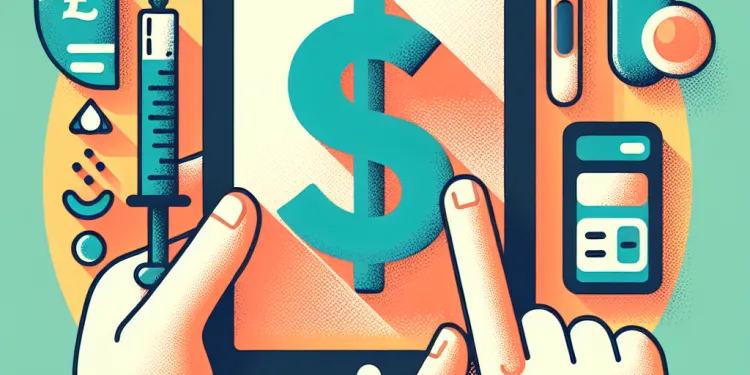
Find A Professional
More Items From Ergsy search
-

What is the role of insulin in Type 2 Diabetes?
Relevance: 100%
-

Can Mounjaro be used in type 1 diabetes?
Relevance: 93%
-

Is Ozempic suitable for type 1 diabetes?
Relevance: 82%
-
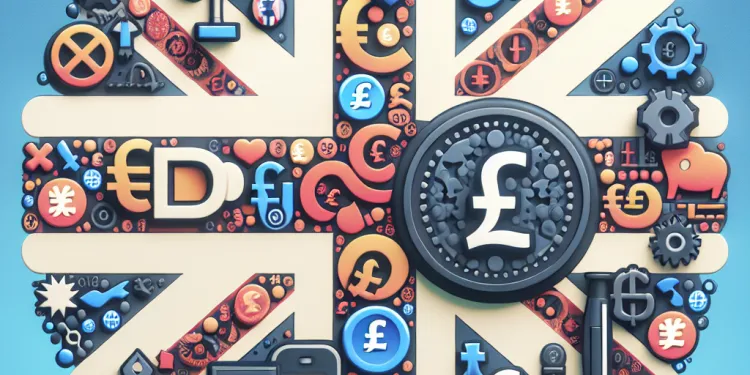
Is Type 2 Diabetes hereditary?
Relevance: 67%
-

What causes Type 2 Diabetes?
Relevance: 66%
-

What is type 1 diabetes?
Relevance: 62%
-
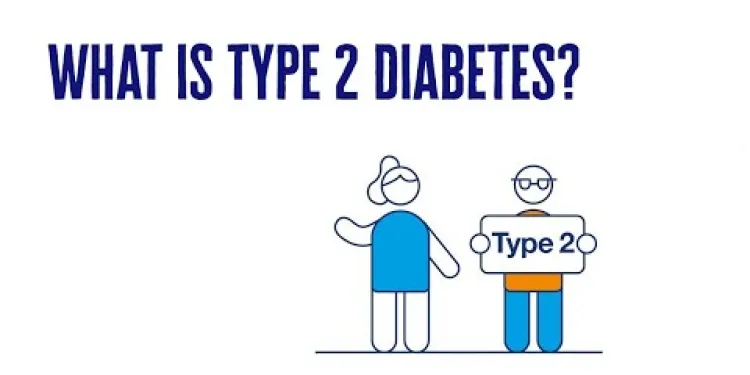
What Is Type 2 Diabetes? | 2 Minute Guide | Diabetes UK
Relevance: 61%
-
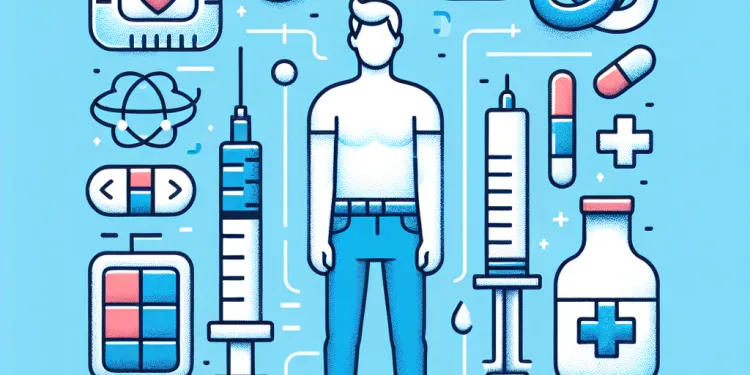
How to inject insulin
Relevance: 58%
-

Can Type 2 Diabetes go away?
Relevance: 57%
-

Where can I find support for managing Type 2 Diabetes in the UK?
Relevance: 57%
-

Can Type 2 Diabetes be prevented?
Relevance: 56%
-

Type 1 Diabetes supporting adults to manage Type 1 diabetes
Relevance: 56%
-

How is Type 2 Diabetes treated?
Relevance: 53%
-
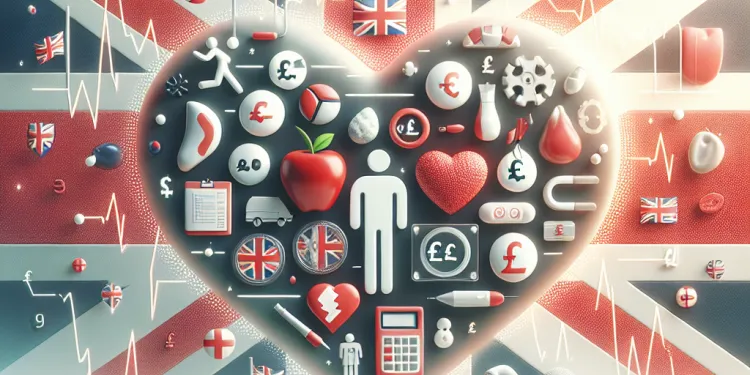
What complications are associated with Type 2 Diabetes?
Relevance: 50%
-

What are the symptoms of Type 2 Diabetes?
Relevance: 49%
-

How to manage type 2 diabetes
Relevance: 49%
-
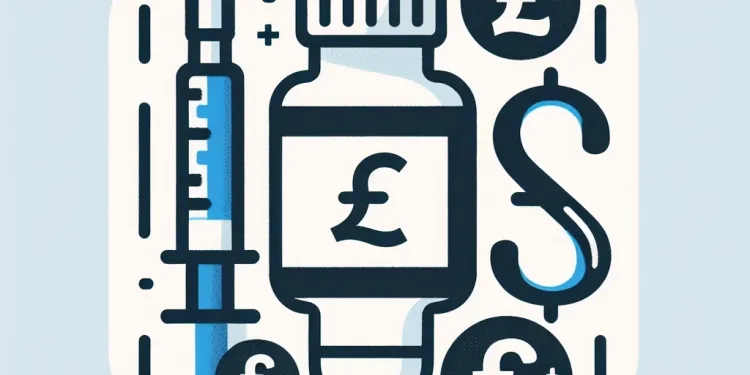
Is Teplizumab used to treat diabetes?
Relevance: 49%
-
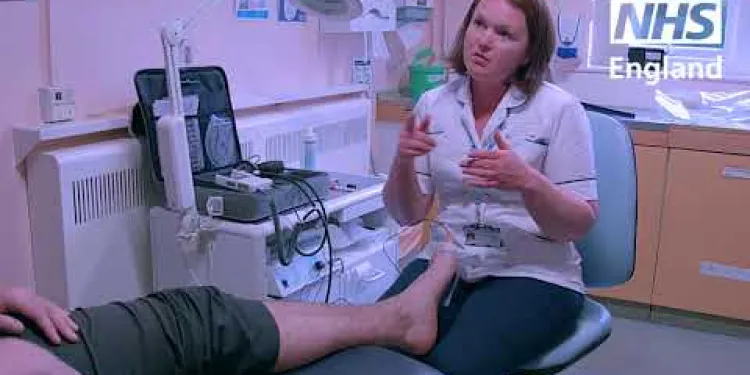
Improving outcomes for people with diabetes
Relevance: 48%
-

How is Type 2 Diabetes diagnosed?
Relevance: 47%
-
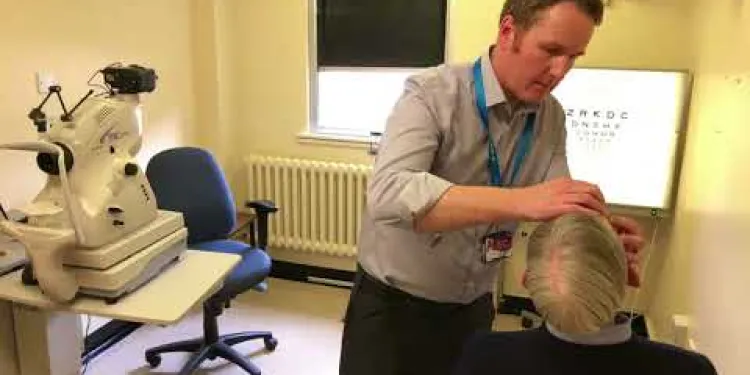
Derbyshire Diabetic Eye Screening - Diabetic Eye Screening
Relevance: 47%
-
What is Barbie Doll Diabetes?
Relevance: 46%
-
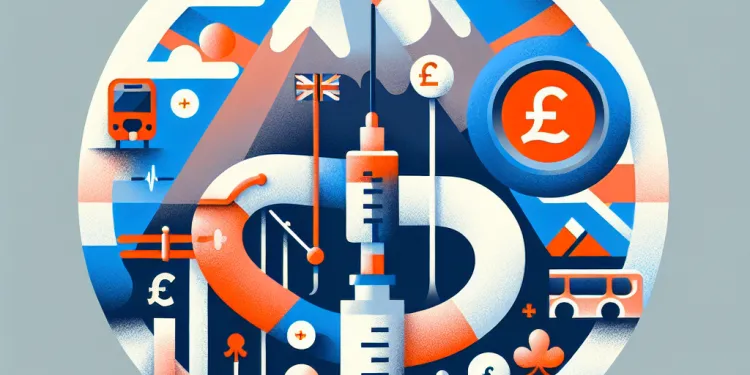
Can Mounjaro be mixed with insulin?
Relevance: 45%
-
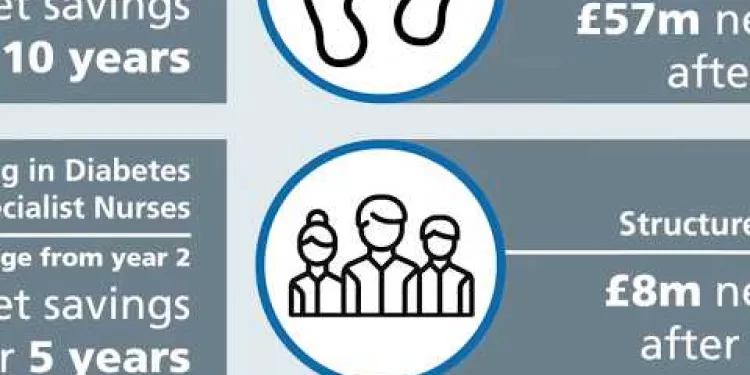
NHS Diabetes Prevention Programme; Preventing Type 2 and improving outcomes for people with diabetes
Relevance: 44%
-

Type 2 diabetes - common signs and symptoms UHL NHS Trust
Relevance: 44%
-

Can stress affect my Type 2 Diabetes?
Relevance: 43%
-
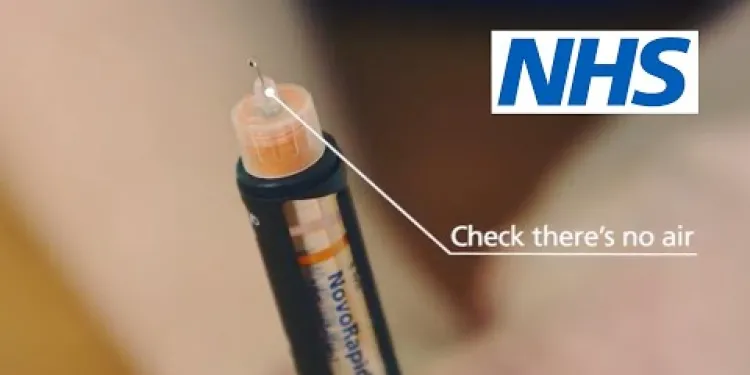
Diabetes: How to inject insulin | NHS
Relevance: 40%
-
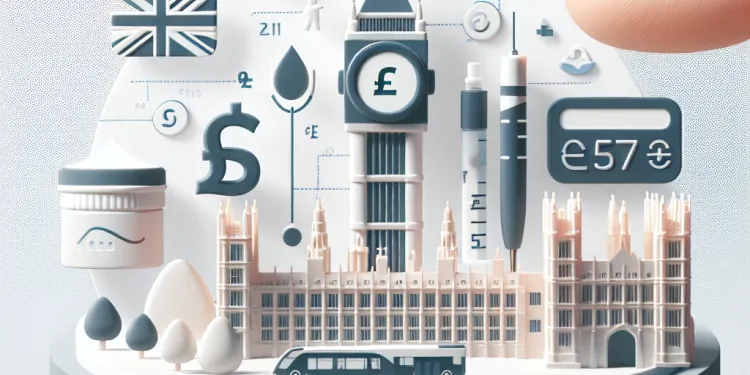
Is Wegovy used for type 2 diabetes management?
Relevance: 40%
-
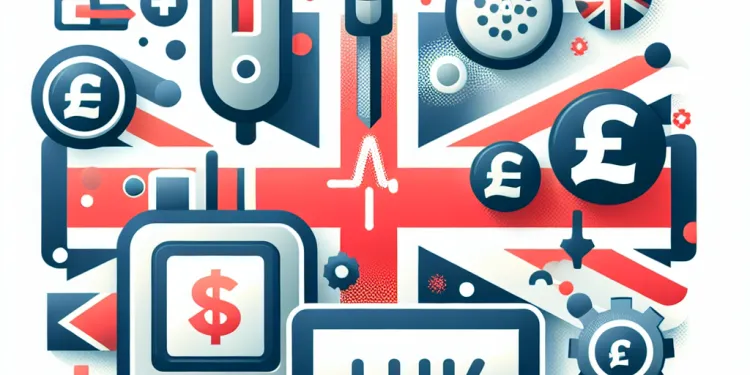
How often should I check my blood glucose levels?
Relevance: 38%
-
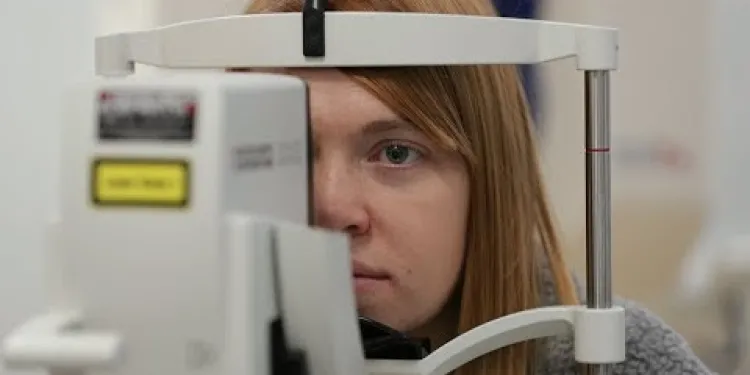
Patient voices in type one diabetes - I would have done things differently.
Relevance: 36%
-

Gestational Diabetes during pregnancy
Relevance: 36%
-

The NHS Diabetes Prevention Programme story
Relevance: 35%
-
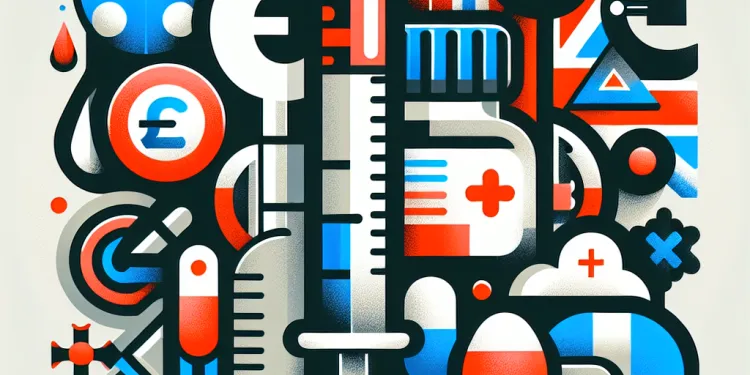
Is Ozempic a form of insulin?
Relevance: 34%
-
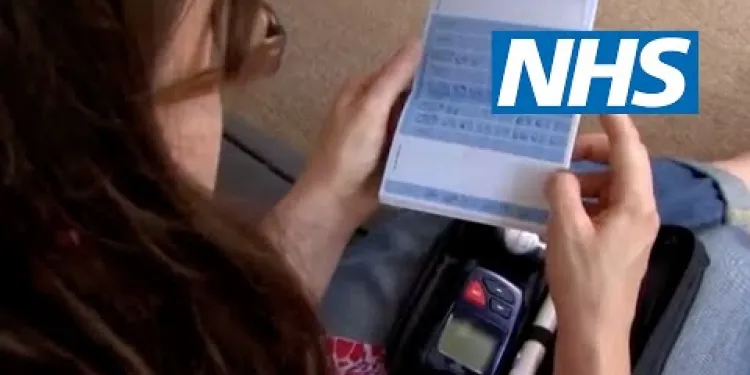
Gestational diabetes | NHS
Relevance: 33%
-

Hansa's story - The NHS Diabetes Prevention Programme
Relevance: 32%
-

Tom's story (NHS Diabetes Prevention Programme)
Relevance: 32%
-

Sarah and Glinys Managing Diabetes into remission Jan2019
Relevance: 32%
-
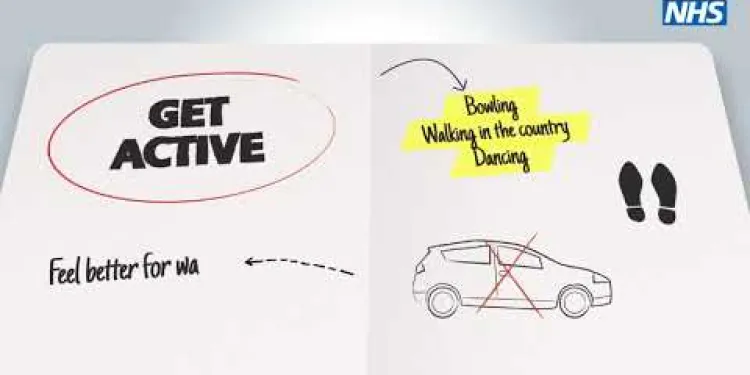
Pam’s story - The NHS Diabetes Prevention Programme
Relevance: 30%
-
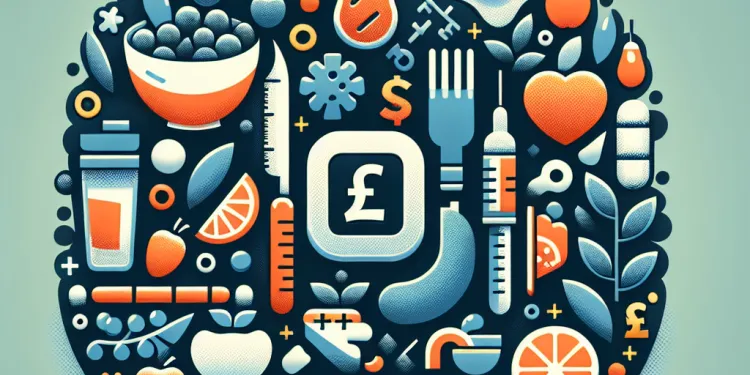
What can I eat if I have Type 2 Diabetes?
Relevance: 29%
-
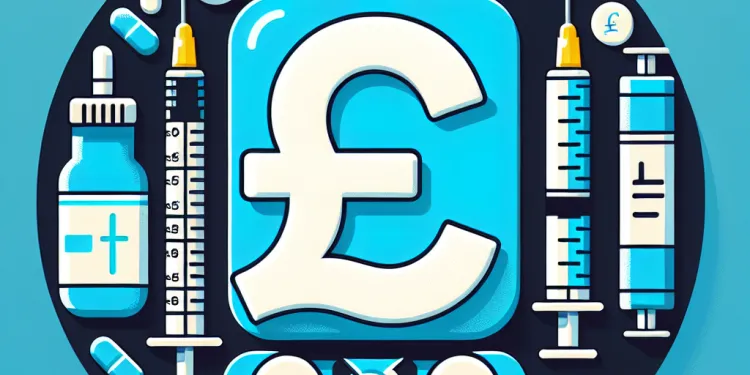
Can I take Ozempic with other diabetes medications?
Relevance: 28%
-
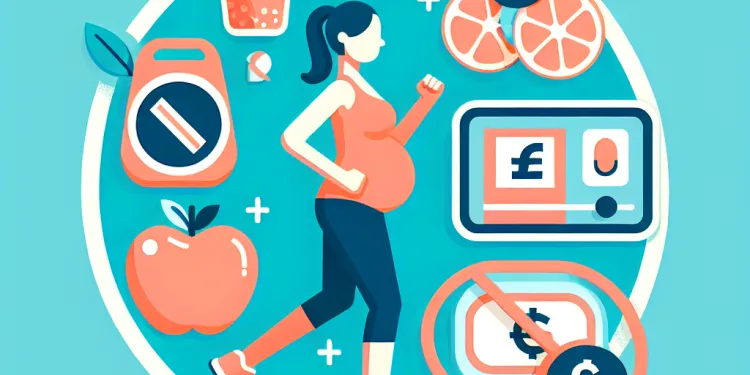
Can exercise help prevent gestational diabetes?
Relevance: 28%
The Role of Insulin in Type 2 Diabetes
Type 2 diabetes is a chronic condition that affects the way the body processes blood sugar, known scientifically as glucose. It is characterized by insulin resistance and, over time, can lead to high blood sugar levels if not managed effectively. Insulin, a hormone produced by the pancreas, plays a crucial role in this process.
Understanding Insulin Function
Insulin is essential for regulating blood glucose levels. After eating, carbohydrates break down into glucose, which enters the bloodstream. In response to rising blood glucose, the pancreas releases insulin. Insulin acts like a key, unlocking cells to allow glucose to enter and be used for energy. It assists in reducing blood glucose levels and storing excess glucose in the liver for future energy needs.
Insulin Resistance in Type 2 Diabetes
In individuals with type 2 diabetes, the body’s cells become resistant to the effects of insulin. This resistance means that cells do not respond correctly to insulin’s signals, leading to impaired glucose uptake. To compensate, the pancreas increases insulin production, but over time it may not keep up with the body's demand. This results in elevated blood sugar levels, characteristic of type 2 diabetes.
Long-term Impact on Insulin Production
Prolonged insulin resistance puts excessive strain on the pancreatic beta cells, which produce insulin. Over time, the cells can become damaged or depleted, leading to decreased insulin production. This decline exacerbates the difficulty in controlling blood glucose levels, complicating type 2 diabetes management.
Managing Insulin Levels
Management of type 2 diabetes often focuses on improving the body’s sensitivity to insulin and optimizing insulin levels. Lifestyle changes, such as a balanced diet, regular physical activity, and weight management, can enhance insulin sensitivity. These changes help improve blood glucose control and reduce insulin demand.
Insulin Therapy in Type 2 Diabetes
In some cases, lifestyle changes alone may not be sufficient. Medications that increase insulin sensitivity or stimulate insulin production are commonly prescribed. If these treatments are not adequate, insulin therapy might be necessary. This involves administering insulin through injections or an insulin pump to help maintain blood glucose levels in a healthy range. The goal is to mimic natural insulin production and action.
The Importance of Regular Monitoring
Monitoring blood glucose levels is vital for managing type 2 diabetes effectively. Regular checks allow individuals to understand how their body responds to insulin and adjust their management plan accordingly. Collaborating with healthcare professionals is essential to optimize insulin usage and achieve better diabetes control.
The Role of Insulin in Type 2 Diabetes
Type 2 diabetes is a long-term illness. It affects how the body handles blood sugar, also called glucose. In this condition, the body doesn't use insulin well. Over time, this can cause high blood sugar. Insulin is a hormone made by a part of the body called the pancreas. It is very important in controlling blood sugar.
Understanding Insulin Function
Insulin helps keep blood sugar at the right level. When we eat, food turns into glucose and goes into the blood. When there is more glucose, the pancreas sends out insulin. Insulin acts like a key. It opens the cells so glucose can go inside and give us energy. Insulin helps lower blood sugar and saves extra glucose in the liver for later use.
Insulin Resistance in Type 2 Diabetes
With type 2 diabetes, the body's cells stop listening to insulin. This is called insulin resistance. It means that glucose cannot get into the cells properly. The pancreas tries to make more insulin, but it can’t always keep up. This makes blood sugar stay high, which is a sign of type 2 diabetes.
Long-term Impact on Insulin Production
When there is insulin resistance for a long time, it can tire out the cells in the pancreas that make insulin. Over time, these cells might get hurt or stop working right, making less insulin. This makes it even harder to control blood sugar in type 2 diabetes.
Managing Insulin Levels
To manage type 2 diabetes, we aim to help the body use insulin better and to control insulin levels. Making changes in daily life can help, like eating a healthy diet, exercising, and keeping a healthy weight. These changes make the body more sensitive to insulin and help control blood sugar.
Insulin Therapy in Type 2 Diabetes
Sometimes, changing habits is not enough. Doctors might give medicine to help the body use insulin better or to help the pancreas make more insulin. If needed, people with diabetes might take insulin through shots or a pump. This helps keep blood sugar levels normal, like the body does naturally.
The Importance of Regular Monitoring
Checking blood sugar regularly is very important for managing type 2 diabetes. It helps people know how well insulin is working in their body. Regular checks and working with doctors can make insulin use better and control diabetes more effectively.
Frequently Asked Questions
What is insulin?
Insulin is a hormone produced by the pancreas that helps regulate blood glucose levels by facilitating the uptake of glucose into cells.
How does insulin affect blood sugar levels?
Insulin helps lower blood sugar levels by enabling cells to absorb glucose from the bloodstream for energy or storage.
What happens to insulin in Type 2 Diabetes?
In Type 2 Diabetes, the body becomes resistant to insulin or the pancreas does not produce enough, leading to higher blood sugar levels.
What is insulin resistance?
Insulin resistance is a condition where cells in the body do not respond effectively to insulin, causing the pancreas to produce more insulin to keep blood sugar levels normal.
How does insulin resistance relate to Type 2 Diabetes?
Insulin resistance is a key feature of Type 2 Diabetes and can lead to the development of the condition as the pancreas struggles to produce enough insulin.
Why does Type 2 Diabetes cause high blood sugar?
In Type 2 Diabetes, insulin resistance and reduced insulin production mean glucose is not efficiently taken up by cells, causing high blood sugar.
Can insulin therapy be used in Type 2 Diabetes?
Yes, insulin therapy is often used in Type 2 Diabetes when blood sugar levels cannot be controlled with diet, exercise, and oral medications.
What role does insulin have in Type 2 Diabetes management?
Insulin helps manage blood sugar levels by supplementing inadequate insulin production or overcoming insulin resistance.
How is insulin administered for Type 2 Diabetes?
Insulin can be administered via injections or insulin pumps to help control blood sugar levels in people with Type 2 Diabetes.
Does everyone with Type 2 Diabetes need insulin?
Not everyone with Type 2 Diabetes needs insulin. Some can manage with lifestyle changes and oral medications, but others may require insulin therapy.
When is insulin therapy initiated in Type 2 Diabetes?
Insulin therapy is usually initiated when oral medications and lifestyle changes do not adequately control blood sugar levels.
What are the types of insulin used in Type 2 Diabetes?
Types of insulin include rapid-acting, short-acting, intermediate-acting, and long-acting, each used based on the individual's blood sugar patterns.
How does diet affect insulin management in Type 2 Diabetes?
A balanced diet can improve insulin sensitivity and help maintain blood sugar levels, reducing the need for insulin therapy in Type 2 Diabetes.
Can exercise improve insulin sensitivity in Type 2 Diabetes?
Yes, regular exercise can improve insulin sensitivity, help control blood sugar levels, and reduce the need for insulin or other medications.
How do oral medications for Type 2 Diabetes work with insulin?
Oral medications can enhance insulin's effectiveness or stimulate the pancreas to produce more insulin, often used in conjunction with insulin.
What is the pancreas's role in insulin and Type 2 Diabetes?
The pancreas produces insulin, and in Type 2 Diabetes, its ability to do so is compromised due to beta-cell dysfunction or overload.
Can weight loss affect insulin resistance in Type 2 Diabetes?
Yes, weight loss can significantly improve insulin resistance and blood sugar control in Type 2 Diabetes, potentially reducing the need for insulin.
How do doctors determine insulin needs in Type 2 Diabetes?
Doctors assess blood sugar levels, lifestyle, and current medication effectiveness to determine if insulin therapy is needed and how it should be dosed.
Can Type 2 Diabetes be reversed to reduce insulin needs?
Some individuals can achieve normal blood sugar levels through significant lifestyle changes and weight loss, reducing or eliminating the need for insulin.
What are the risks of not managing insulin needs in Type 2 Diabetes?
Unmanaged insulin needs can lead to uncontrolled blood sugar levels, increasing the risk of complications such as cardiovascular disease, nerve damage, and kidney disease.
What is insulin?
Insulin is a chemical in our body. It helps change sugar in our blood into energy for us to use. This is important because our bodies need energy to work and play.
Some people have trouble with insulin. Their bodies do not make enough insulin, or it doesn't work right. This can make them feel sick. These people might need medicine to help.
If you want to learn more, you can talk to a doctor or look at books for kids about the body.
Insulin is something in your body that helps keep your sugar levels just right. It is made by a part of your body called the pancreas. Insulin helps sugar get into your cells so your body can use it for energy.
How does insulin change sugar levels in the blood?
Insulin helps control the sugar in your blood.
When you eat, sugar goes into your blood.
Insulin helps move this sugar into your body’s cells.
Cells use the sugar for energy.
If you have too much sugar, insulin helps lower it.
Using a tool like a sugar meter can help check your sugar level.
Insulin helps to keep blood sugar levels low. It does this by allowing the cells in our body to take in sugar from the blood. The cells use this sugar for energy or save it for later.
What happens to insulin in Type 2 Diabetes?
In Type 2 Diabetes, the body has trouble using insulin.
Insulin is a chemical in the body that helps turn sugar into energy.
With Type 2 Diabetes, the body doesn't use insulin properly. There is too much sugar in the blood.
This can make you feel tired and sick.
To help, you can:
- Eat healthy food
- Exercise regularly
- Take medicine if the doctor says so
Tools like picture cards or apps can help remember tips.
In Type 2 Diabetes, the body has trouble using insulin properly. Sometimes, the pancreas does not make enough insulin. This makes blood sugar go up.
What is insulin resistance?
Our bodies use a hormone called insulin. Insulin helps move sugar from the blood into our cells. The cells use sugar for energy.
Sometimes, the body does not use insulin well. This is called insulin resistance. It means the sugar stays in the blood instead of going into the cells.
When this happens, it can cause health problems.
Here are some ways to help:
- Eating healthy foods like fruits and vegetables.
- Exercising regularly, like walking or playing games.
- Getting enough sleep at night.
Insulin resistance is when the body's cells do not use insulin properly. This makes the pancreas work harder to make more insulin to keep blood sugar levels normal.
What is the link between insulin resistance and Type 2 Diabetes?
Insulin helps sugar from food get into your body's cells. Your cells use this sugar for energy.
Sometimes, your body does not use insulin properly. This is called insulin resistance. When this happens, sugar builds up in your blood instead of going into your cells.
When too much sugar stays in your blood, it can lead to Type 2 Diabetes. Type 2 Diabetes is a health problem where your body cannot control sugar well.
To help understand this, you can use pictures that show how insulin works in the body. Talking to a doctor or nurse can also help you learn more.
Insulin resistance is when the body has trouble using insulin. This is important in Type 2 Diabetes. It happens when the pancreas, a part of the body, finds it hard to make enough insulin.
To understand this better, you can use tools like pictures or videos that explain Type 2 Diabetes. You can also ask someone to read this with you and explain the hard parts.
Why Does Type 2 Diabetes Make Blood Sugar High?
Type 2 diabetes can make your blood sugar high. Here is why:
- Not Enough Insulin: Your body needs insulin to use sugar. With type 2 diabetes, your body does not have enough insulin.
- Insulin Does Not Work Well: Sometimes, the insulin you have does not work right. This means your body cannot use sugar properly.
When this happens, sugar stays in your blood and does not go into your cells to give you energy. This can make your blood sugar go high.
Here are some things that can help:
- Healthy Eating: Eat fruits, veggies, and whole grains.
- Exercise: Move your body every day to help lower blood sugar.
- Medicine: Some people need medicine to help control their blood sugar.
Remember, it is important to check your blood sugar and talk to your doctor.
Type 2 Diabetes is when your body has trouble using a special hormone called insulin. Insulin helps your body use sugar from food as energy. But if you have Type 2 Diabetes, your body doesn't use insulin well, and it doesn't make enough of it. This means that sugar stays in your blood instead of going into cells to give you energy. This makes your blood sugar too high.
Can People with Type 2 Diabetes Use Insulin?
Yes, people with Type 2 Diabetes sometimes need insulin shots to help because eating healthy food, exercise, and taking medicine by mouth don't always work to keep their blood sugar at the right level.
How does insulin help people with Type 2 Diabetes?
Insulin is a hormone. It helps control blood sugar levels. People with Type 2 Diabetes need to manage how much sugar is in their blood.
Sometimes their bodies don't use insulin well. This can make their blood sugar too high. Taking insulin can help lower blood sugar to a healthy level.
Tools to help include:
- Blood sugar test kits to check levels
- Insulin pens or pumps to give insulin
- Doctors and nurses for advice
It is important to talk to a doctor to find the best plan.
Insulin helps control sugar levels in the blood. It does this by adding more insulin if the body does not make enough or if the body does not use insulin well.
How do people with Type 2 Diabetes take insulin?
People with Type 2 Diabetes might need insulin to help their body use sugar properly. Here is how they can take it:
- Insulin Pen: This is a pen-like tool that makes it easy to inject insulin. You press a button to get the right dose.
- Insulin Syringe: This is a small needle and tube used to draw up the right amount of insulin from a bottle and inject it.
- Insulin Pump: This is a small machine that gives insulin through a thin tube. The tube is attached to the skin.
Tips: Ask a nurse or doctor to show you how to use these tools. You can also watch videos for more help.
People with Type 2 Diabetes can use injections or pumps to take insulin. This helps keep their blood sugar at the right level.
Do people with Type 2 Diabetes need insulin shots?
Not everyone with Type 2 Diabetes needs insulin shots.
If you have Type 2 Diabetes, your doctor will help you decide the best treatment.
Some people can use food plans, exercise, and pills instead.
If you find reading hard, ask a friend or family member to help you.
Some people with Type 2 Diabetes do not need to take insulin. They can control it by eating healthy food, staying active, and taking pills. But some people do need insulin shots to help them stay well.
When do people with Type 2 Diabetes start insulin treatment?
People start taking insulin when pills and changes in diet and exercise do not keep blood sugar low enough.
What types of insulin are used for Type 2 Diabetes?
Insulin helps people with diabetes control their blood sugar. For Type 2 Diabetes, there are different types of insulin that people can use.
Here are some common types:
- Fast-acting insulin: This works quickly and is used before meals.
- Long-acting insulin: This lasts a long time and helps control blood sugar throughout the day and night.
- Mixed insulin: This is a mix of fast and long-acting insulin.
People with Type 2 Diabetes can work with their doctor to find the best insulin plan for them.
Tools to help:
- Use an insulin pen to make it easier to give the right dose.
- Keep a blood sugar diary to track levels and see what works best.
There are different types of insulin. These are rapid-acting, short-acting, intermediate-acting, and long-acting. People use each type based on their blood sugar needs.
How does food affect insulin control in Type 2 Diabetes?
What you eat can change the way your body handles Type 2 Diabetes.
Here’s how food helps:
- Some foods can help your body use insulin better.
- Eating healthy food keeps your sugar levels steady.
- Avoiding sugary foods can prevent blood sugar spikes.
Here are some tips to help:
- Choose whole grains, vegetables, and fruits.
- Try to eat at the same times every day.
- Talk to a nurse or doctor for advice.
You can use apps to track your meals and see how they affect your sugar levels.
Eating the right foods can help your body use sugar better. This can make your body need less medicine for Type 2 Diabetes.
Can exercise help people with Type 2 Diabetes?
Does moving your body help if you have Type 2 Diabetes?
If you have Type 2 Diabetes, doing exercise can be good for you.
Exercise can help your body use insulin better. Insulin helps keep your blood sugar at the right level.
If you're not sure what exercises to do, you can ask your doctor. They can help you choose exercises that are safe and fun.
You can also try things like walking, dancing, or riding a bike.
Remember to start slow and do a little bit at a time. You can invite a friend or family member to exercise with you. This can make it more fun!
Some people also like using apps or videos to help them exercise. You can try that too.
Yes, exercising often can make your body use insulin better. It can help keep your blood sugar normal and you might not need as much insulin or other medicine.
How do pills for Type 2 Diabetes work with insulin?
Some people with Type 2 Diabetes take pills to help their body use insulin better. These pills can be taken with insulin to help control blood sugar levels. Insulin helps to move sugar from the blood into the cells for energy. The pills help the insulin work better or help the body make more insulin.
It is important to follow the doctor's instructions when taking diabetes pills and insulin. This helps keep blood sugar at a healthy level.
If you need help, you can use tools like alarms to remember to take your medicine. You can also ask someone you trust to remind you. Always talk to your doctor if you have questions about your medicine.
Pills can help insulin work better. They can also help the body make more insulin. People often use these pills with insulin together.
What does the pancreas do with insulin and Type 2 Diabetes?
The pancreas is a body part that helps control sugar levels. It makes a chemical called insulin.
If your body cannot use insulin well, it can lead to Type 2 Diabetes.
Type 2 Diabetes happens when sugar builds up in the blood. It is important to eat healthy food and exercise to help manage it.
Using pictures or videos can help you understand more about diabetes.
The pancreas is a part of your body. It makes something called insulin. Insulin helps your body use sugar for energy.
If you have Type 2 Diabetes, your pancreas has trouble making insulin. This can happen because the part of the pancreas that makes insulin, called beta cells, isn’t working well or is working too hard.
Tools that can help you understand this better include picture diagrams and videos. Talking to a doctor or nurse can also help you learn more.
Does losing weight help with insulin problems in Type 2 Diabetes?
Yes, losing weight can help a lot with controlling Type 2 Diabetes. It can make it easier to manage blood sugar levels and may mean you don't need as much insulin.
How do doctors figure out how much insulin someone with Type 2 Diabetes needs?
Doctors check how a person's body handles sugar.
They look at:
- Blood sugar levels.
- What food the person eats.
- How active the person is.
Doctors might use tools to help, like:
- Blood sugar meters to check sugar levels.
- Diabetes apps to track food and activity.
Talking with the doctor helps find the right amount of insulin.
Doctors check how much sugar is in your blood. They also look at what you eat, how much you move, and the medicine you take now. This helps them know if you need insulin medicine and how much you should use.
Can Type 2 Diabetes Get Better So You Need Less Insulin?
Type 2 diabetes can sometimes get better. You can try these things:
- Eat healthy food.
- Exercise regularly.
- Talk to your doctor about your medicine.
These things might help you need less insulin. Always ask your doctor for advice.
Some people can make their blood sugar levels normal by making big changes in their daily habits and losing weight. This can help them need less or no insulin.
What can happen if you don't take care of your insulin in Type 2 Diabetes?
If you have Type 2 Diabetes, it's important to take care of your insulin. Insulin helps control sugar in your blood.
If you don't manage your insulin, you might feel very tired, thirsty, or go to the bathroom a lot. Your eyesight might also get blurry.
Over time, high blood sugar can hurt your heart, eyes, and feet. It can also make you very sick.
Here are some ways to take care of your insulin needs:
- Check your blood sugar levels often.
- Eat healthy foods like fruits and vegetables.
- Exercise by playing or walking.
- Take your medicine if your doctor gives you some.
Ask a family member, friend, or a nurse for help if you need it. You can also use tools like a blood sugar monitor to check your levels.
If you don't manage your insulin well, it can cause your blood sugar levels to go up and down too much. This can make you more likely to have heart problems, nerve problems, and kidney problems.
Useful Links
- Ergsy carfully checks the information in the videos we provide here.
- Videos shown by Youtube after a video has completed, have NOT been reviewed by ERGSY.
- To view, click the arrow in centre of video.
- Most of the videos you find here will have subtitles and/or closed captions available.
- You may need to turn these on, and choose your preferred language.
- Go to the video you'd like to watch.
- If closed captions (CC) are available, settings will be visible on the bottom right of the video player.
- To turn on Captions, click settings .
- To turn off Captions, click settings again.
More Items From Ergsy search
-

What is the role of insulin in Type 2 Diabetes?
Relevance: 100%
-

Can Mounjaro be used in type 1 diabetes?
Relevance: 93%
-

Is Ozempic suitable for type 1 diabetes?
Relevance: 82%
-

Is Type 2 Diabetes hereditary?
Relevance: 67%
-

What causes Type 2 Diabetes?
Relevance: 66%
-

What is type 1 diabetes?
Relevance: 62%
-

What Is Type 2 Diabetes? | 2 Minute Guide | Diabetes UK
Relevance: 61%
-

How to inject insulin
Relevance: 58%
-

Can Type 2 Diabetes go away?
Relevance: 57%
-

Where can I find support for managing Type 2 Diabetes in the UK?
Relevance: 57%
-

Can Type 2 Diabetes be prevented?
Relevance: 56%
-

Type 1 Diabetes supporting adults to manage Type 1 diabetes
Relevance: 56%
-

How is Type 2 Diabetes treated?
Relevance: 53%
-

What complications are associated with Type 2 Diabetes?
Relevance: 50%
-

What are the symptoms of Type 2 Diabetes?
Relevance: 49%
-

How to manage type 2 diabetes
Relevance: 49%
-

Is Teplizumab used to treat diabetes?
Relevance: 49%
-

Improving outcomes for people with diabetes
Relevance: 48%
-

How is Type 2 Diabetes diagnosed?
Relevance: 47%
-

Derbyshire Diabetic Eye Screening - Diabetic Eye Screening
Relevance: 47%
-
What is Barbie Doll Diabetes?
Relevance: 46%
-

Can Mounjaro be mixed with insulin?
Relevance: 45%
-

NHS Diabetes Prevention Programme; Preventing Type 2 and improving outcomes for people with diabetes
Relevance: 44%
-

Type 2 diabetes - common signs and symptoms UHL NHS Trust
Relevance: 44%
-

Can stress affect my Type 2 Diabetes?
Relevance: 43%
-

Diabetes: How to inject insulin | NHS
Relevance: 40%
-

Is Wegovy used for type 2 diabetes management?
Relevance: 40%
-

How often should I check my blood glucose levels?
Relevance: 38%
-

Patient voices in type one diabetes - I would have done things differently.
Relevance: 36%
-

Gestational Diabetes during pregnancy
Relevance: 36%
-

The NHS Diabetes Prevention Programme story
Relevance: 35%
-

Is Ozempic a form of insulin?
Relevance: 34%
-

Gestational diabetes | NHS
Relevance: 33%
-

Hansa's story - The NHS Diabetes Prevention Programme
Relevance: 32%
-

Tom's story (NHS Diabetes Prevention Programme)
Relevance: 32%
-

Sarah and Glinys Managing Diabetes into remission Jan2019
Relevance: 32%
-

Pam’s story - The NHS Diabetes Prevention Programme
Relevance: 30%
-

What can I eat if I have Type 2 Diabetes?
Relevance: 29%
-

Can I take Ozempic with other diabetes medications?
Relevance: 28%
-

Can exercise help prevent gestational diabetes?
Relevance: 28%